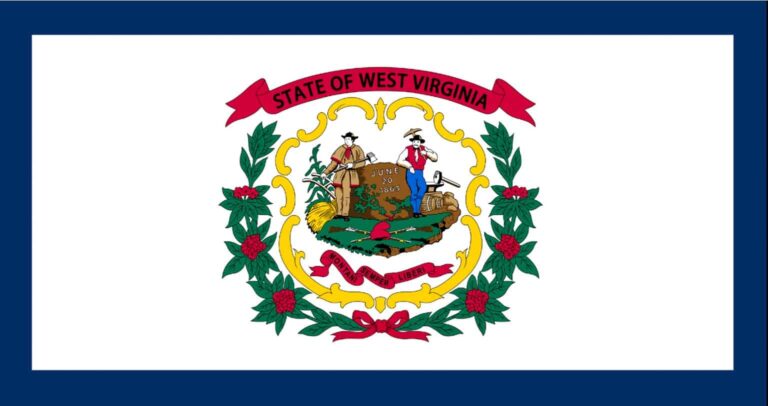If you want to keep your property safe and protected from trespassers and avoid trespassing when you are out on an adventure, you’ll need a thorough understanding of your home state’s trespassing laws.

Only by understanding the trespassing laws in your state will you know precisely where your rights begin when it comes to properties you control, and know what is demanded of you when it comes to respecting the property of others.
But, just like every other law in the land, each and every state puts its own spin on its trespass statutes.
Today we are looking at West Virginia. West Virginia’s trespassing laws are not particularly difficult to understand.
They are extremely long, and that means you’ll have to read for a while and read carefully if you want to understand them in their entirety.
You’ll definitely want to know about the signage requirements in the state and also the punishments and financial penalties should you trespass on someone else’s property.
Keep reading, and I will tell you more.
West Virginia Trespassing Law Overview
- Most types of trespassing in West Virginia are misdemeanors, but a few specific violations are felonies.
- West Virginia has many special statutes covering trespassing on government property, railroads, schools, mines, and other installations.
- West Virginia requires posted signage for protecting certain kinds of property.
What Constitutes Trespassing in West Virginia?
Though the common definition of trespassing is well understood, every state has its own specific definition as it applies to use throughout the statutes on the subject.
In the case of West Virginia, trespass is usually specifically defined in the context of each statute describing the crime.
But it can be broadly described as knowingly entering or remaining on the property of another without a license, invitation, or authorization and doing so knowingly.
Depending on whether or not the property is fenced or posted with no-trespassing signs this might increase the severity of the violation.
As I mentioned above in the introduction, West Virginia is unfortunately another state with tons and tons of lengthy laws on the subject, and that means you have lots of reading to do but below there is an excerpt from 61-3B-3 which defines trespassing on a property other than a structure or conveyance:
61-3B-3. Trespass on Property Other Than Structure or Conveyance
(a) It is an unlawful trespass for any person to knowingly, and without being authorized, licensed or invited, to enter or remain on any property, other than a structure or conveyance, as to which notice against entering or remaining is either given by actual communication to such person or by posting, fencing or cultivation.
(b) First offense conviction. — Upon a first trespassing conviction pursuant to subsection (a) of this section, the person is guilty of a misdemeanor and shall be fined not less than $100 nor more than $500.
(c) Second offense conviction. — Upon a second trespassing conviction pursuant to subsection (a) of this section, the person is guilty of a misdemeanor and shall be fined not less than $500 nor more than $1,000.
(d) Third offense conviction. — Upon a third and subsequent trespassing conviction pursuant to subsection (a) of this section, the person is guilty of a misdemeanor and shall be fined not less than $1,000 nor more than $1,500.
(…)
Does West Virginia Require “No Trespassing” Signs?
Yes. No-trespassing signs are required for protecting certain kinds of property in West Virginia assuming they are not fenced or specific, personal notice is not given to individuals who may trespass.
Additionally, West Virginia has fairly specific requirements for posting signage, namely the interval, the size of the text on the sign, and a requirement for posting at entrances to the property and at driveways.
You can read about the specific posting requirements for signage in 61-3B-1:
61-3B-1. Definitions
(4) “Posted land” is land that has:
(…)
(A) Signs placed not more than five hundred feet apart, along and at each corner of the boundaries of the land. The signs shall be reasonably maintained, with letters of not less than two inches in height and the words “no trespassing”. The signs shall be placed along the boundary line and at all roads, driveways and gates of entry onto the posted land so as to be clearly noticeable from outside of the boundary line; or
(…)
(C) It is not necessary to give notice by posting on any enclosed land or place not exceeding five acres in area on which there is a dwelling house or property that by its nature and use is obviously private in order to obtain the benefits of this article pertaining to trespass on enclosed lands.
(…)
Is Fencing Required to Protect Property?
No, not strictly required but in closing most properties with fencing that is manifestly designed to exclude intruders, on foot or in a vehicle, basically counts as a notice against trespassing.
Just a reminder, if your property is unfenced and over a certain size with or without a residential property on it you’ll definitely want to post no-trespassing signs.
What Other Marks Indicate “No Trespassing”?
Purple paint. West Virginia is one of a handful of states that use purple paint laws when it comes to marking property against trespassing.
These laws got their common name for the exact reason you are thinking: the law specifies the use of purple paint bands or stripes for posting a property instead of using signage.
This is simple enough in itself, but just like when posting signage you’ll have to adhere to state-mandated requirements if you want the law to back you up should anyone decide to trespass on your posted property.
In West Virginia, these paint markings must be vertical lines of at least two inches and width and 8 inches in length, placed between 3 feet and 6 feet over the surface of the ground or water on a tree, fence post, or other terrain feature.
Once again, you can read these exact requirements for yourself taken from 61-3B-1:
61-3B-1. Definitions
(…)
(B) Boundaries marked with a clearly visible purple painted marking, consisting of one vertical line no less than eight inches in length and two inches in width, and the bottom of the mark not less than three nor more than six feet from the ground or normal water surface. Such marks shall be affixed to immovable, permanent objects that are no more than one hundred feet apart and readily visible to any person approaching the property. Signs shall also be posted at all roads, driveways or gates of entry onto the posted land so as to be clearly noticeable from outside the boundary line.
(…)
Can Solicitors Ignore “No Trespassing” Signs?
No. Solicitors as a rule cannot ignore a no-trespassing sign in West Virginia, though this is still likely to happen in urban and suburban areas especially if the solicitor is feeling bold.
That being said, they should never ignore a no-trespassing sign in a rural area, and under no circumstances can they bypass a fence, closed and locked gate, or other obstacles to entry and get away with it.
Can Trespassing Result in Arrest in West Virginia?
Yes, it can. Contrary to the opinions of some people, trespassing is a crime and is sometimes a crime with serious consequences.
In West Virginia, pretty much every kind of trespassing is a misdemeanor and that can result in a fine and potentially time in jail.
Felony trespassing charges can result in substantial fines and lengthy prison sentences. Think twice before trespassing on government property on any sensitive installation!
Can You Take Someone to Court for Trespassing?
Yes, definitely. Anyone who flagrantly trespasses on your property in defiance of posted signage, a specific order to stay away, or crosses fencing to do so can easily find themselves dragged into court.
The same applies if someone trespasses maliciously in order to commit or further another crime in progress, if they damage property while trespassing or if they do it to harass or threaten the property owner.
Special Instances of Trespassing in West Virginia
West Virginia has so many special statutes covering specific circumstances of trespassing that I cannot possibly list them all here.
One of the most relevant, though, for residents of West Virginia is found in 61-3B-6, which covers trespassing in surface and subsurface mines.
Sometimes popular hangouts for shooting, exploring, spelunking, and other activities are nonetheless illicit if you don’t have permission to be there:
61-3B-6. Mine Trespass; Penalties
(a) A person who willfully enters an underground coal mine, whether active workings, inactive workings, or abandoned workings, without permission, is guilty of a felony and, upon conviction thereof shall be imprisoned in a correctional facility not less than one year and nor more than 10 years and shall be fined not less than $5,000 nor more than $10,000: Provided, That for any conviction pursuant to this subsection, any inactive or abandoned underground workings must be either: (1) Sealed; or (2) clearly identified by signage at some conspicuous place near the entrance of the mine that includes a notice that the unauthorized entry into the mine is a felony criminal offense.
(…)

Like what you read?
Then you're gonna love my free PDF, 20 common survival items, 20 uncommon survival uses for each. That's 400 total uses for these dirt-cheap little items!
We will not spam you.